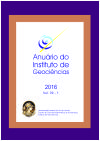Qualitative Evaluation of Bottled Water Stored in Polyethylene Terephtalate Based on Organic Chemical Compounds
DOI:
https://doi.org/10.11137/2016_2_29_35Keywords:
Polyethylene terephtalate, Migration, Bottled water, Iran.Abstract
Polyethylene terephtalate (PET) is commonly used for bottling drinking water. PET must be harmless in the sense of the migration potentially unsafe materials into its content. The quality determination of migrated organic chemicals in 15 bottled water stored in PET was performed by gas chromatography-mass spectrometry technique. Most of the organic chemical compounds including phthalate, alkyl phenol, higher alkene and organic acid were detected in the samples. However, no carcinogens and hormones were recognized in the analyzed waters. The most migrated compounds identified between 13 to 100% of bottled water. The findings of present study could be alarming for the food safety legislative establishments in Iran due to the existence of some organic compounds with adverse influence on human wellbeing. Further investigation is recommended to evaluate the risk assessment of the public health arising from the presence of these toxic contaminants in the bottled water consumed by the people.Downloads
Download data is not yet available.
Downloads
Published
2016-06-23
How to Cite
Ebrahimi, A. (2016) “Qualitative Evaluation of Bottled Water Stored in Polyethylene Terephtalate Based on Organic Chemical Compounds”, Anuário do Instituto de Geociências. Rio de Janeiro, BR, 39(2), pp. 29–35. doi: 10.11137/2016_2_29_35.
Issue
Section
não definida
License
This journal is licensed under a Creative Commons — Attribution 4.0 International — CC BY 4.0, which permits use, distribution and reproduction in any medium, provided the original work is properly cited.















